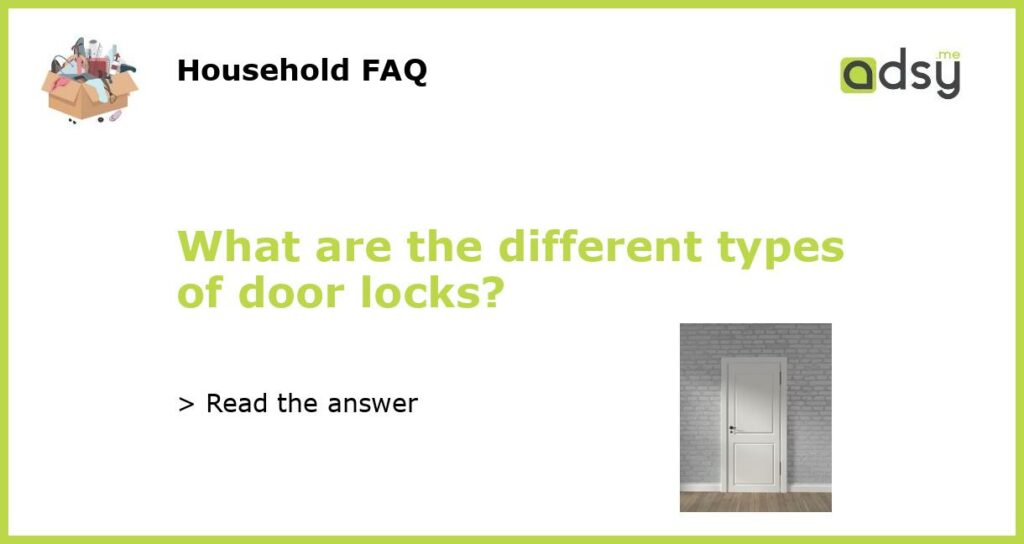Deadbolt Locks
One of the most common types of door locks is the deadbolt lock. Deadbolt locks are typically installed on external doors and offer a high level of security. They consist of a solid metal bolt that extends into the door frame when locked, making it much more difficult for intruders to force the door open. Deadbolt locks come in various styles, including single-cylinder, double-cylinder, and keyless entry options.
Knob Locks
Knob locks are another common type of door lock that is often found in residential settings. These locks are built into the doorknob itself and are usually used on interior doors, such as bedroom or bathroom doors. While they offer a basic level of security, knob locks are not as secure as deadbolt locks and can easily be bypassed by someone with enough force or the right tools. It is important to note that knob locks should never be used as the sole locking mechanism on an external door.
Lever Handle Locks
Lever handle locks are similar to knob locks in that they are commonly used on interior doors, such as office or commercial building doors. However, lever handle locks are often easier to operate than knob locks, making them more accessible for people with disabilities or mobility issues. Like knob locks, lever handle locks do not provide a high level of security and should not be used as the primary lock on an external door.
Mortise Locks
Mortise locks are a more secure type of door lock that is commonly used in commercial buildings, hotels, and high-security residential properties. These locks require a pocket or “mortise” to be cut into the door in order for the lock to fit properly. Mortise locks typically have a deadbolt and a latch bolt, providing both a high level of security and the ability to lock the door from both the inside and outside.
Smart Locks
Smart locks are a modern and convenient type of door lock that allows users to control the lock using their smartphone, a keypad, or other smart devices. These locks often use wireless technology such as Bluetooth or Wi-Fi to communicate with the user’s device. Smart locks offer features such as remote locking and unlocking, activity logs, and the ability to provide temporary access codes for guests or service workers. While smart locks offer convenience and flexibility, it is important to ensure that they have adequate security measures in place to prevent hacking or unauthorized access.






